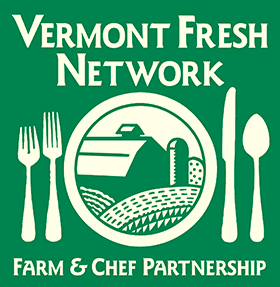Animal Welfare Legislation Proposed in Vermont House
February 20, 2018Montpelier legislators this session are discussing a bill, H 750 introduced by Rep. Sam Young (D-Glover), to provide financial assistance to farmers seeking animal welfare certification.
This bill proposes a grant program that would help farmers implement best practices, receive third-party certification, and maintain that certification.
There are several different certifications in animal welfare, three common ones are Animal Welfare Approved, Certified Humane and Global Animal Partnership. Differences between the programs include what types of businesses can be certified and which animals, in addition to differences in the management practices permitted under each. Vermont Law School's Center for Agriculture and Food Systems, with the ASPCA, produced a guide last year with a quick comparison between the three programs, and a longer report that includes discussion of why farms with strong animal welfare standards might seek third party certification.
In December, years of work on integrating humane standards with national organic certification were reversed when the Trump administration withdrew the Organic Livestock and Poultry Practices final rule (as reported here in the Washington Post, and here in Civil Eats, among other outlets). NOFA-VT has been active in trying to safeguard humane practices as part of organic production.
A major goal of H. 750 is to help farmers translate their best practices into consumer dollars. The Vermont Law School study suggests that the certified label can in fact generate greater income, although their studies are nationally based and not specific to the Vermont marketplace.
Certification programs offer several benefits to farmers, beyond price premiums. They are third party audits that offer consumers clarity through specifying what is being reviewed, and then indicating whether those standards have been met. They are democratizing in the sense that the label appears wherever a product is sold - you don't have to be a big buyer with lots of clout to demand these details on production practices. When done well, programs keep up to date with the latest research and best practices in their topic area, and use the certification process to pass on this information to farmers - when combined with grant programs or technical assistance they can help farmers implement those best practices as well. Some programs expand even further to invest in original research and field trials. They can be a collaborative framework for everyone to work towards transforming the way we practice agriculture.
There are down sides, too. It costs money to run these programs, especially to run them well. The factors determining to what degree labels translate into increased revenues that reward the farming practices behind them are worthy of an entire economics textbook. And one of their main strengths - telling consumers specific pieces of information about farming practices - is also blatantly overlooked most of the time. We know from both anecdote and research that consumers impute all sorts of virtues around labels that aren't actually part of the certification. A prime example is withdrawing humane treatment from organic rules - regardless of what the rulebook says, consumers simply assume (and will continue to assume) that's part of the deal.
You'll see on the VFN farmer renewal forms this year, we're including a place to indicate both what formal certifications a farm has received and additional notes on production practices. We are hoping to use this system to develop a better way to talk about certification, including helping buyers know what questions to ask to be sure that what they get matches the sort of practices they support. Pairing audited labels with thoughtful conversation is currently our best solution. Look for more resources on this topic in the spring.

